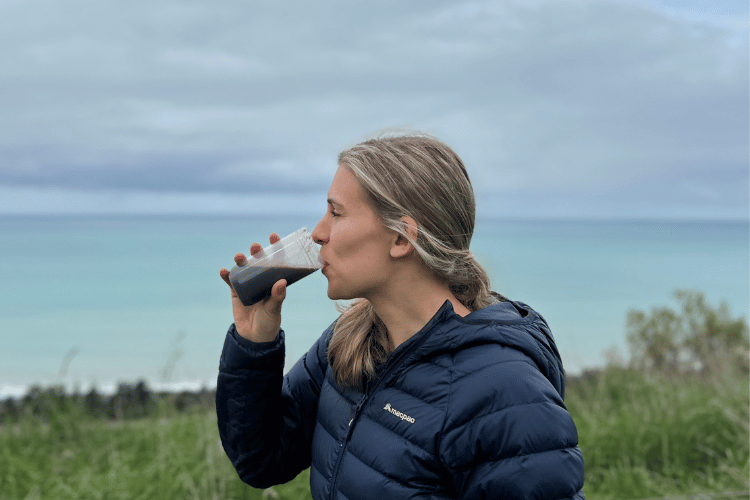Over recent years, the dietary term “plant-based” has gained increasing interest from the western world, due to a variety of reported health and environmental benefits. But what does it mean exactly, and why should we try to eat a more plant-based diet? Read on to learn more as well as tips on how to go about eating a more plant-based diet.
What is plant-based?
Plant-based means eating foods primarily from plants. This includes not only fruits and vegetables, but also nuts, seeds, oils, whole grains, legumes, and beans. The majority of the plant-based foods available today are not fancy fake ‘meats’, but rather everyday food items you are already well acquainted with! Eating plant-based doesn’t mean that you are completely vegetarian or vegan either, rather, you are regularly choosing more of your foods from plant sources. [1]
What is whole food plant-based?
Whole food plant-based (WFPB) takes it a step further and refers to a diet consisting of mainly plant-based foods that are unprocessed, or minimally processed. ‘Whole food’ and ‘plant-based’ are terms typically used to describe something that is made from whole, plant foods that have not been refined in any way. By following a WFPB diet, you are automatically increasing your fibre intake. Fibre is only found in plant-based foods, so by eating more plant food you are also increasing the nutritional content of your diet because whole foods are packed with vitamins, minerals and antioxidants! [2]
Why should I eat plant-based?
Your health
One of the most powerful steps you can take to improve your health and immunity, boost your energy levels, and prevent chronic diseases is to move to a plant-based diet, or include more plant-based options in your everyday eating routine.
There’s excellent scientific evidence that many chronic diseases can be prevented, controlled, or even reversed with a whole-food, plant-based diet. One of the most comprehensive studies ever conducted on human nutrition, The China Study, gathered data over a 20-year period and found some pretty staggering results.
- Plant based diets are associated with a lower risk of cardiovascular disease and have been shown to reverse heart disease.
- Eating plant-based can reduce the risk of type-2 diabetes, obesity, autoimmune diseases, certain types of cancer and other major illnesses.
- There are multiple peer-reviewed studies that show statistically significant results that animal protein may promote the growth of cancer.
So why are plants just so darn good for us? They have essential nutrients that we are not able to get from any other food source, for a start. Plants are jam-packed with vitamins, minerals, phytochemicals, antioxidants and fibre – the potency of these nutrients is hard to come by in other food sources. [3] [4] [5] [6]
There is one vitamin however, that is not able to be obtained by following a strict plant-based diet – Vitamin B12. Vitamin B12 is found in the earth’s soil, and because we thoroughly clean our produce before consuming it, these nutrients get washed away. B12 is prevalent in animal products for that exact reason. It’s easy to supplement B12 as many of today’s fortified foods include the nutrient, such as nutritional yeast. It is also a common nutrient in B-complex supplements.
The environment
It is already commonly known that intensive animal agriculture does have a negative impact on our natural environment. Particularly in New Zealand, where animal agriculture accounted for over 50% of all Greenhouse Gas (GHG) emissions from all sectors in 2020. By consuming a more plant-based diet, you are choosing to support businesses and agriculturalists that opt to produce less harmful foods, such as plants (ideally organically grown). At the end of the day, your most powerful vote on how society runs is with your dollar.
With issues like climate change, land and ocean degradation becoming more apparent as more research undertaken, it is clear that our planet is undergoing an environmental sustainability crisis. This highlights the importance of sustainable food systems, due to the heavy environmental costs of food production, processing and consumption.
A growing body of literature suggests that shifting towards a more plant-based diet may be one of the most effective actions that an individual can adopt to reduce the negative impacts on the environment. By shifting demand away from intensively farmed animal products towards plant-based products, we encourage our food suppliers to rethink their business strategies. The benefits of this change are sevenfold; it helps to reduce extreme land and water use, it slows deforestation, desertification and biodiversity loss, it supports vital natural ecosystems, it reduces extreme air, land and water pollution – and ultimately reduces the speed and impact of negative climate change occurrences. [7] [8] [9]
How do I eat plant-based?
So you are keen to try a diet that includes more plant-based foods. But where should you begin? It can be a daunting idea when, for your entire life, your meals have been centred around the “meat and 3 veg” diet.
Here is a helpful guide on how to replace foods in your current diet with plant-based options:
- Switch out red meat for other forms of protein, such as lentils, beans, tofu, tempeh, textured soy protein and occasionally “fake meats” as a treat. We have all had bad experiences with incorrectly cooked tofu, so learning how to prepare it correctly is a game changer.
- Fish can be swapped out for foods rich in Omega 3, such as walnuts, chia seeds, hemp seeds, and flaxseeds. If you want to make a fishy meal, banana blossom mimics the texture incredibly. Using seaweed can also help to bring that fishy taste to your meal and is packed full of essential nutrients.
- Yogurt and cow's milk can be easily swapped for coconut yogurt and plant-based milks such as oat, coconut or soy milk.
- Opt for margarine instead of butter.
- Cashews blended up can be a delicious and healthy replacement for any recipe that calls for cream, or cheese. Here is our favourite recipe for savoury cashew cheese – trust us, it goes well with EVERYTHING!
- Reach for dark chocolate instead of milk. Whitakers 50% dark chocolate contains no milk products and is not too dark for those who love a creamy flavour.
- Remember, just because things are plant-based doesn’t automatically mean they are healthy. White sugar and oil are technically “plant-based” but are still foods you should try to limit in your diet due to their high calorie makeup and low nutritional content.
A great place to start is to think of all your current dinnertime favourites, and do a quick Google search on how these can be “veganised”. See a list of our favourite examples here:
- Nachos
- Sheppard's Pie
- Red lentil daal
- Healthy mac n cheese made with veg sauce
- Vege Spaghetti Bolognese
- Move over meatloaf – lentil loaf is the next big thing!
- A delicious, comforting bowl of veg ramen
It is always a good idea to be conscious about increasing the amount of food you are consuming. Meat and dairy products are very high in calories due to the dense fat content, so by eating more whole-food plant-based you will naturally be consuming a lower level of calories. This means you need to eat larger quantities of the good stuff to maintain a healthy calorific intake.
Above all else, however, the most important thing is to increase the amount of fruit and veg you are eating. It can be hard at first, and there is no one-size-fits-all solution, so it is important to set yourself realistic goals. And, as we have mentioned in our rainbow blog, ensuring you are eating a colourful array of fruit and veg is important because different types of antioxidants are found in different coloured produce.
We love that our shots give people an easy, fast way to dial up their nutrition in a few minutes every day with plant-based goodness. If nothing else, you are getting 4 servings of leafy green veg and antioxidant-rich berries in one shot. If you want to give them a go, check out our get started page.
References
[1] HARVARD HEALTH: What is a plant-based diet and why should you try it?
[3] The Safe and Effective Use of Plant-Based Diets with Guidelines for Health Professionals
[7] SPECIAL REPORT: SPECIAL REPORT ON CLIMATE CHANGE AND LAND
[9] New Zealand's Greenhouse Gas Inventory 1990 2020 snapshot















